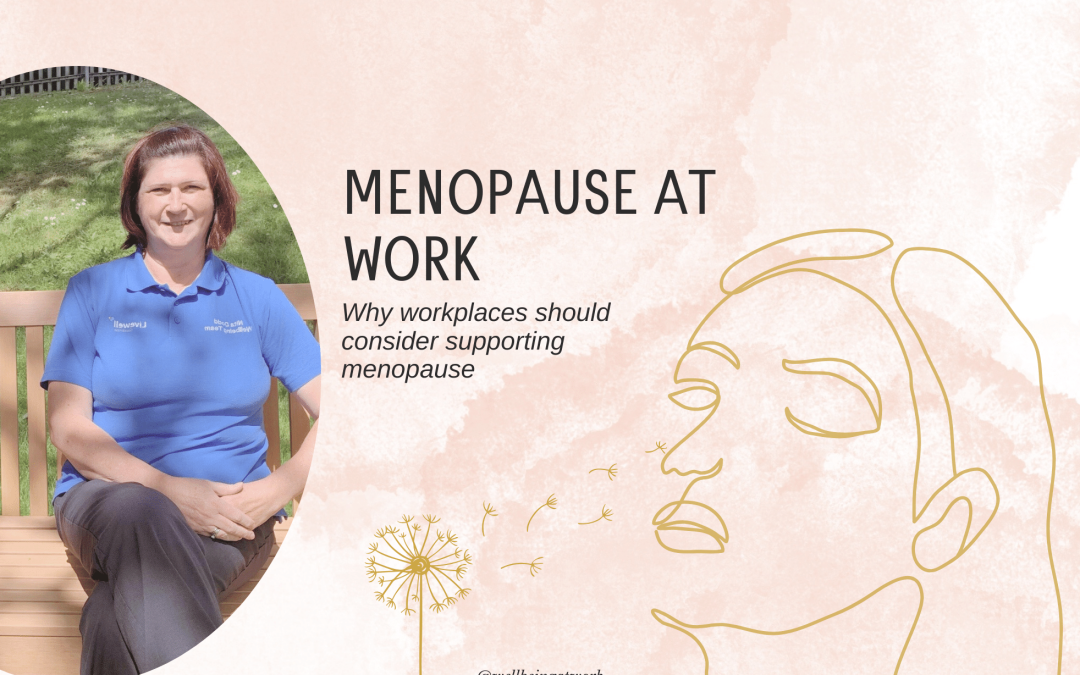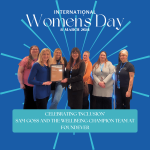It’s World Menopause Day, a day held every year on the 18th of October. The purpose of today is to raise awareness of menopause, and the support options available to improve health and wellbeing for those going through menopause.
We had the opportunity to speak with Nita Dodd, Advanced Health Improvement Practitioner, Registered Mental Health Nurse, one of our Wellbeing Trainers, and Menopause Advocate for workplaces. With Nita’s help, we learned why workplaces should consider menopause and why it is important to support those going through menopause…
Menopause is a completely normal life event for those going through a menstrual cycle. I like to refer to menopause as the ‘Second Spring’. It is regarded as a time for those to find a new and confident voice. Some cultures even find those full of wisdom and respect in their later lives! It gives great opportunities…
While everyone’s experience with menopause is different, for those still working during menopause, their symptoms have been more detrimental to their career. Around a million workers going through menopause have left their jobs due to workplace issues and menopause – like inflexible policies, stress at work, and a negative attitude towards menopause. What’s really at issue here is how our working lives have changed. As we work longer and later in our lives for various reasons, we still have menopausal workers who need support from their workplaces.
Menopause is not a protected characteristic under the Equality Act 2010, if someone were to be put at a disadvantage and treated less favourably based on their menopause symptoms, this may be considered discrimination if it is related to a protected characteristic like age.
With that in mind, let’s get this right! Especially as menopausal individuals are the fastest-growing demographic in the workforce – ages 45-55. Any business can benefit greatly from these individuals because they are experienced, skilled, and have a lot of work under their belts. Putting in place things at work to improve workplaces doesn’t have to be complicated. It could be really simple, such as having positive and open conversations between employers and employees. It could be a case of addressing the issues around flexible working or individual workload. But most importantly putting in place a menopause work policy, encouraging inclusivity, and promoting good people management – our Menopause Training would also be a great starting point!
There’s also an abundance of resources out there to help workplaces and individuals. The most important ones for workplaces would be the Menopause Workplace Pledge from the Wellbeing of Women, the government’s Women’s Health Strategy for England, and Henpicked!
Thank you, Nita, for shedding some light on what workplaces can do to make their workplaces more supportive of individuals going through menopause.
If you missed our Menopause Awareness in the Workplace Webinar – check it out here on YouTube






